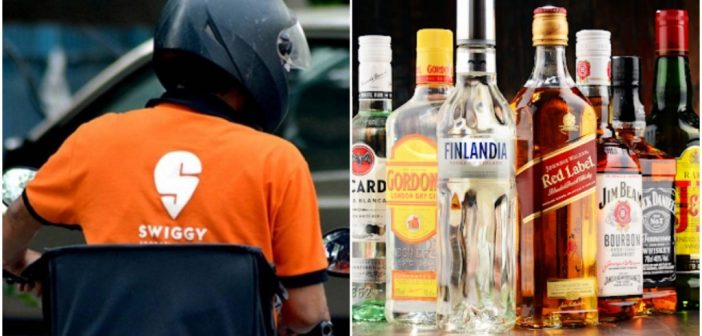As the Indian market continues to grow in terms of e-commerce and digital transformation, several sectors have evolved to offer convenience and efficiency to consumers. However, the sale of alcohol and tobacco remains relatively archaic, bound by restrictions and regulations that prevent online delivery. A dedicated app for the home delivery of these products, with the appropriate legal framework, could not only bring benefits to consumers but also help improve regulation and monitoring, while contributing significantly to economic growth. Here’s a detailed look at why India should consider permitting this service.
Growing E-Commerce Culture and Consumer Demand
The Indian e-commerce market has expanded dramatically, with consumers embracing the convenience of home delivery across various sectors—groceries, electronics, pharmaceuticals, and more. The food and beverage sector, particularly, has witnessed a surge in online orders post-pandemic, with the online food delivery market projected to reach $15 billion by 2024. The rising demand for convenience has created an expectation for broader categories of products to be delivered, including alcohol and tobacco, which are currently excluded from most delivery services.
However, this demand isn’t being met despite the fact that several other countries, including the U.S., UK, Australia, and parts of Europe, already allow home delivery of alcohol with strict regulations. There is a latent demand in India, especially in urban centers, where consumers seek the convenience of ordering alcohol online, as they do with other consumables.
Potential for Economic Growth and Revenue
The alcohol industry in India is a significant contributor to state revenues through taxes, generating over $30 billion annually. Legalizing and regulating the home delivery of alcohol and tobacco would increase government revenue through taxes on sales, digital transactions, and compliance measures. States like Maharashtra, West Bengal, Odisha, and Punjab have already piloted the delivery of alcohol during the COVID-19 pandemic, and early reports suggested a boost in sales and tax revenues.
Furthermore, a dedicated app for home delivery would open up new avenues for employment, particularly for delivery personnel, app developers, and logistics providers. With the right safeguards, this could provide a boost to India’s gig economy, which is already thriving in sectors like food delivery and e-commerce logistics.
Benefits to Consumers
The convenience of home delivery is a crucial factor that consumers value in today’s fast-paced lifestyle. Having alcohol and tobacco products delivered to one’s doorstep would reduce the need for consumers to visit stores, especially during late hours or in unsafe conditions, which is particularly relevant for women and elderly consumers. A well-regulated delivery system could ensure that purchases are made in a safe and responsible manner.
A dedicated app for alcohol and tobacco delivery could also provide consumers with access to a wider range of products that may not be readily available in physical stores. This includes premium brands, international selections, and other niche products that typically require visits to specialized retailers.
Curbing Illicit Trade and Underage Sales
A significant argument against home delivery has been concerns over the potential for misuse, especially regarding underage consumption. However, these challenges can be addressed effectively through technology. A dedicated app for alcohol and tobacco delivery could implement stringent age-verification protocols, where buyers must submit valid identification at both the point of purchase and delivery. These systems have been successfully implemented in other countries, helping reduce instances of underage sales.
Moreover, India faces a persistent problem with counterfeit and illicit alcohol. A digital platform can ensure that only licensed and legitimate sellers participate in the sale of alcohol, providing an added layer of protection against spurious liquor, which causes thousands of deaths annually. This kind of controlled supply chain, powered by verified sellers, would bring much-needed transparency to the alcohol market and reduce the circulation of illegal products.
Legal Framework and Regulation
A comprehensive legal framework is essential for the success of such a service. The home delivery of alcohol and tobacco should be closely monitored with clear regulations on where, when, and how these deliveries can be made. States must have a uniform policy regarding delivery hours, restrictions on high-risk areas (like near schools), and quantity limits. Importantly, the regulation should ensure that delivery does not encourage over-consumption or binge drinking.
With technology, deliveries can be tracked and logged, ensuring compliance with local laws. App platforms can be designed to restrict sales during non-permissible hours, based on real-time geographic data. Similar to the regulation of prescription drugs, a robust verification process could be developed to ensure only authorized individuals are purchasing these products.
Social and Health Concerns
One of the main counterarguments to allowing home delivery of alcohol and tobacco is the potential health risks, particularly concerning addiction. While these concerns are valid, restricting delivery does little to reduce consumption. Instead, it may push buyers to unsafe alternatives, such as unregulated or counterfeit products. With a well-regulated home delivery system, the sale of alcohol and tobacco can be more tightly controlled, with regular audits and reviews of purchase patterns to flag problematic behavior.
Moreover, through dedicated platforms, governments could run public health campaigns targeted at promoting responsible consumption. This could include reminders about consumption limits, health risks, and direct links to helplines for addiction support.
Conclusion
Allowing the home delivery of alcohol and tobacco products via a dedicated app can offer convenience to consumers, boost the economy, and curb illicit trade. With stringent legal regulations, robust technology for verification, and regular oversight, India can provide this service while safeguarding public health. As e-commerce continues to evolve, it is time for the alcohol and tobacco industry to adapt and align with consumer demand for convenience and digital access.





